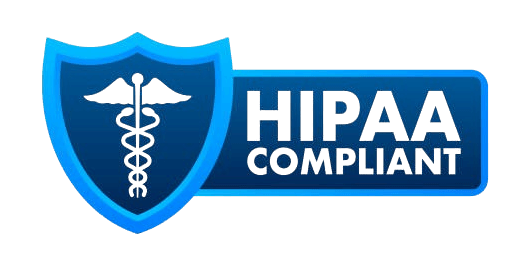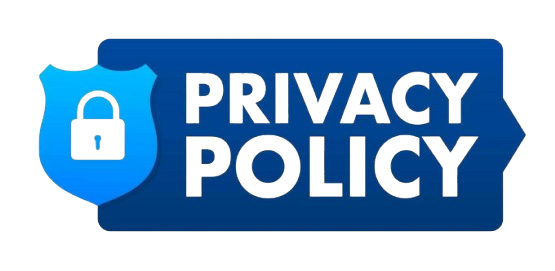POS 11 in Medical Billing: Definition, Use Cases & Compliance Guide
A quick overview of Place of Service (POS) 11 in medical billing, its impact on clean claims, reimbursements, and compliance

Navigating medical billing codes can be overwhelming, even for experienced healthcare professionals and billing teams. One commonly misunderstood code is POS 11 (Place of Service 11), which indicates that services were provided in a physician’s office or independent clinic. Accurate use of POS 11 can directly impact reimbursement, reduce denials, and ensure clarity in insurance documentation such as the Explanation of Benefits (EOB).
At MedStates, we have helped numerous practices improve claim accuracy by ensuring their POS selections align with payer rules. In this guide, you will learn what POS 11 means, when to use it, how it affects reimbursement, and how to stay compliant while maximizing payment efficiency. For a complete overview of all POS codes and their descriptions, visit our Place of Service Codes in Medical Billing page
BLOG OUTLINE
What is Place of Service 11?
Place of Service (POS) Code 11 refers to services provided by healthcare professionals in a private office or medical practice. In other words, when someone searches “what is place of service 11” or “place of service 11 means,” the answer is simple — it designates a physician’s office where care is delivered in a non-facility setting.
The Place of Service 11 means, as defined by CMS (Centers for Medicare & Medicaid Services), identifies care rendered in the provider’s own office or clinic, not in a hospital or outpatient facility. The CMS POS 11 description officially classifies it as the “office” setting, used for most standard in-person visits
Site of service code 11 applies only when a provider treats a patient in their own office rather than a hospital or institutional facility. It is also known as “service location code 11” or “place of service code 11 office,” depending on payer documentation. The correct use of service location POS 11 ensures compliance and optimal reimbursement because insurance payers apply different rates based on where care occurs.
To be exact, Code 11 Place of Service represents a physician’s office or outpatient clinic setting. This is used when services are delivered in a location where the provider maintains their own office space, outside of a hospital or institutional setting. According to CMS (Centers for Medicare & Medicaid Services), POS 11 is defined as:
“Location, other than a hospital, skilled nursing facility (SNF), military treatment facility, community health center, state or local public health clinic, or intermediate care facility (ICF), where the health professional routinely provides examination, diagnosis, and treatment of illness or injury.”
If a patient visits their doctor’s private office for a routine check-up or follow-up, POS 11 is the correct place of service code to report. For a comparison between office-based and hospital-based billing, see our detailed blog post POS 22 vs POS 11 .
WHEN TO USE Place of Service Code 11
Use POS 11 in medical billing when:
The patient receives care at a physician-owned or independently operated office.
Services are provided on-site at the provider’s designated office location.
The facility is not affiliated with a hospital or outpatient department.
The service qualifies as an “office visit place of service,” such as an evaluation, consultation, or follow-up conducted in the provider’s own practice.
When billing for routine care or minor procedures, the correct location code 11 must be used to indicate the physician’s office setting rather than a hospital or urgent care.
Example: A patient visits a dermatologist’s private practice for a skin biopsy — since this occurs in a private medical office, POS 11 is the correct place of service for the clinic or office setting
HOW Place of Service 11 in Medical Billing IMPACTS REIMBURSEMENT
Understanding POS 11 is essential because it directly affects:
Claim approval and payment rates
Payer compliance
Revenue cycle timing
Proper use of site of service code POS 11 ensures:
Claims are processed cleanly and reimbursed at the correct non-facility rate defined under CMS guidelines for place of service code 11 office.
Providers receive timely payments without underpayment risk.
Documentation aligns with payer expectations and CMS POS 11 policy.
Since office-based care POS 11 corresponds to facility code 11 and service code 11 in CMS billing systems, physicians typically receive a higher professional reimbursement rate per visit compared to hospital-based (facility) locations. This occurs because facility type code 11 assumes the provider bears the overhead costs of maintaining their office setting. Common POS 11 services include:
Office consultations and routine check-ups
Minor procedures
Diagnostic testing
Preventive screenings
Behavioral or therapy sessions conducted in a clinic setting
COMMON MISTAKES WITH Facility Code POS11 — AND HOW TO AVOID THEM
Even skilled billers can misapply POS 11, triggering audits or recoupments. Many errors stem from misunderstanding what POS 11 means in CMS terminology — the physician’s office place of service code — which represents care delivered in an independently operated medical office. According to the CMS place of service code 11 office definition, this code should only be used when the provider maintains and furnishes services in their own office setting.
❌ Using POS 11 for telehealth claims instead of POS 02 or POS 10
❌ Selecting POS 11 for hospital-based services (should be POS 22)
❌ Not aligning POS selection with chart documentation
❌ Overlooking payer-specific POS policies
❌ Reusing POS 11 as a default across encounter types
❌ Failing to update provider office addresses in the billing system
❌ Ignoring telehealth modifiers (e.g., Modifier 95 when permitted under POS 11)
✅ Tip: Always verify the actual care location before submission and use modifiers properly when billing for virtual visits. Remember, the physician’s office place of service code is 11 — when care occurs in an office maintained by the provider.
BEST PRACTICES FOR ACCURATE POS Code 11 BILLING
✅ Verify the site of service 11 and actual care location before claim submission
✅ Align POS 11 usage with CMS and payer definitions
✅ Use POS 11 for in-office visits and non-facility encounters
✅ Double-check claim forms (CMS-1500) before submission
✅ Train staff on POS 11 compliance and reimbursement rules
✅ Audit place of service (POS) reports quarterly to detect errors early
✅ Ensure point of service 11 entries match the provider’s designated office address in the billing system to avoid location 11 medical billing mismatches
Case Insight:
A multi-specialty clinic partnered with MedStates to audit its office-based billing. By correcting POS 11 usage and ensuring accurate service 11 coding across their claims, they saw a 15% reduction in denials and faster reimbursements within 60 days.
POS 11 might seem simple — but its accuracy determines how fast you get paid. MedStates specializes in POS 11 medical billing and compliance services that help providers:
- Eliminate coding errors in POS 11 medical billing and reduce denials
- Stay compliant with CMS POS 11 and payer rules
- Streamline revenue cycle processes for faster cash flow
Our certified billing experts stay up to date on the latest regulations and payer requirements, ensuring accurate POS 11 claim submissions every time.
💬 Let MedStates handle the complexities of coding POS 11 in medical billing so you can focus on patient care — and get paid what you deserve 📞 Schedule a Call for Billing Consultation Now!


